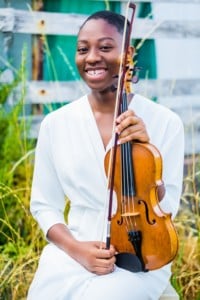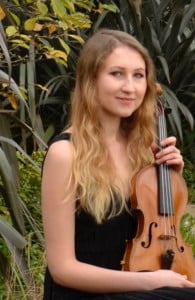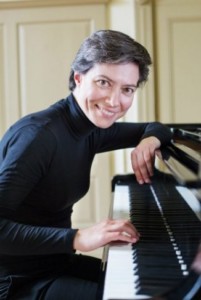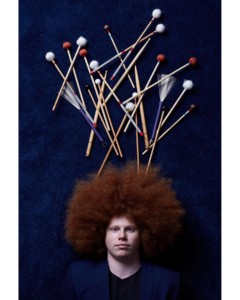Programme
Ọbangiji – Rev J. J. Ransome-Kuti, Arr. Aanu Sodipe
Wẹrẹ – Trad. Yoruba, Arr. Aanu Sodipe
Ta la ba fi ọ we – Trad. Yoruba, Arr. Aanu Sodipe
Abimọ ko gbọn – Aanu Sodipe
Baba Mi – Aanu Sodipe
Performers
- Aanu Sodipe
- Gabriela Zukowicz
- Gabrielle Carberry
- Richie Sweet
- Irina Lyakhovskaya
Background
The Yoruba people are a tribe from the south west of Nigeria. Fela Sowande (1905 – 1987) born when Nigeria was still colonised, was a Yoruba virtuosic organist and composer. In his late 20s he came to study in London and won various prizes like the Read Prize for the highest aggregate marks in the fellowship examination, and even became a fellow of Trinity College of Music in 1940s.
He was a key figure in preserving Yoruba music, incorporating local Nigerian melodies and rhythms in his organ works. He once said
Whatever African music may or may not be, one thing about it is that it communicates. It is for this reason that we find, on the social levels, that we do not have performers and listeners, but performers and participants; we do not fix time, date and place for making music, it “happens” when the spirit moves us. We must also note that on the more serious levels, i.e. the ritualistic and the religious, African music still communicates. . . On the social level, it communicates with the men and women in the society, on the ritualistic and religious levels, it communicates with the gods and the goddesses of the group’s pantheon, with the forces of nature (1)
Much of this programme is inspired by Sowande’s deep appreciation of Yoruba culture, his determination to preserve it, and his passion to communicate this with his listeners.
Ọbangiji
Ọbangiji is a Yoruba hymn which Sowande used in one of his organ works, which I have arranged for today’s ensemble. He also used various traditional rhythms like the konkonkolo rhythm. The word konkonkolo itself has no meaning, it is the Yoruba drummer’s translation of what the drum speaks when it plays this rhythm, and is used in the final part of this song.
Wẹrẹ & Ta la ba fi ọ we
The Yoruba language is a core part of Yoruba culture and in many ways defines the uniqueness of it. It is very different from English, French or German, as it often sounds like one is singing when one speaks Yoruba well. In Christianity’s early days in Nigeria, efforts were made to translate English hymn texts into Yoruba, using the same European hymn tunes. This created conflict, as the melodic contour of the European hymns did not at all match the tonal inflections of Yoruba language, or any other of the local dialects in Nigeria, and therefore distorted the meaning of the text. In response to this, the elite members of the Nigerian congregation began composing melodies that were derived from the tonal shape of the Yoruba text.
Wẹrẹ and Ta la ba fi ọ we are examples of these. In the following two pieces, I have arranged both melodies for today’s ensemble.
Abimọ ko gbọn
Yoruba culture thrives through the strength of community, especially in family life. I’ve heard it said many times by Nigerians that it takes a whole village to raise a child. There are many such proverbs in the Yoruba language that relate to family life, one of which is – Abimo ko gbọn, a ni ko ma saa ku, ki ni npa omo bi aigbon?
The meaning is this – a child lacks wisdom, and while some may say that the most important thing is for that child not to die, what kills more surely than lack of wisdom? This portrays the importance of parents, elders, teachers and other members of the community in adding their own knowledge to the child’s life as they grow older. Abimọ ko gbọn is a piece I’ve composed using the tonal inflections of the words in this proverb.
Baba mi
One person that I know very well, who is very much invested in preserving his Yoruba culture is my Father, who moved to London in the 1980s to study.
In many ways, he faced many pressure that could have caused him to abandon his culture, but he held onto this really tightly. Nigerians all over the world still have the mentality that the Western culture is more elite than our own, and many parents would focus on their children learning English more than their own language. However, our parents taught us to read, write and speak Yoruba fluently, even though we were born and raised in this country. The following piece is inspired by my appreciation of my father’s resilience in passing down the richness of our Yoruba culture.
Biographies
Aanu Sodipe

For Aanu, music making started at church where she first learned to sing and to play the violin and piano. The community there was the first to influence her in the direction of making music, harmonising, and arranging. Her number one hobby is still to sit at the piano and explore harmonies and melodies for new song arrangements. She attended Mossbourne Community Academy secondary school, during which time she won the Hackney Mayor’s Music Award in 2013 and the Robert Lewin’s Award for Young Musicians in 2014. Since 2013 she has been teaching and is still expanding her teaching career. She recently graduated with a 1st Class Bachelor’s degree in Classical Performance at Trinity Laban Conservatoire, and is now studying her masters in performance. This year she was awarded with the Rhona Reid Charitable Trust scholarship, the Helen Roll scholarship, and the TCL scholarship.
Gabriela Zukowicz

Violinist Gabriela Zukowicz was born in Poland. She is currently in her final year of a Master of Music postgraduate degree studying violin with professor John Crawford at Trinity Laban Conservatoire of Music and Dance in London where she also completed her undergraduate degree studying with professor John Crawford and previously professor Ofer Falk.
She studied with polish soloist and pedagogue Patrycja Piekutowska in Feliks Nowowiejski School of Music in Szczecin, Poland. She has participated numerous music courses and masterclasses in Poland and abroad and has been coached by professors such as Izabela Ceglinska, Marcin Baranowski, Antoni Cofalik. She attended many master classes and lectures with great violin virtuosos. During Zenon Brzewski International Music Course, one of the oldest musical courses in Europe, she completed a course for violin teachers. Gabriela played with Trinity Laban Symphony Orchestra with members of Bournemouth Symphony Orchestra and BBC Symphony Orchestra, and also with Trinity Laban String Ensamble. She performed under such conductors as David Danzmayr, Douglas Boyd, Kwame Ryan.
Gabriela was awarded The Leverhulme Trust Scholarships for the academic years 2019/20 and 2020/21 as well as Trinity College London Scholarship. Her studies were also generously supported by a grant from The Henry Wood Accommodation Trust Fund.
Irina Lyakhovskaya

Irina Lyakhovskaya was born in St Petersburg, Russia. She graduated from the St Petersburg Conservatoire in 1999, where she studied with Alexander Sandler. In 2000, she was invited to continue her studies in England as a postgraduate scholar at Trinity Laban Conservatoire of Music and Dance (then known as Trinity College of Music) with John Bingham.
In 2003, Irina won first prize in the TCM Association’s Soloist Competition with her interpretation of the Schumann Piano Concerto. Since then, she has given many performances at leading international venues including the Philharmonic Hall in St Petersburg, Smetana Hall in Prague and the Coliseum in Porto. In the UK, she has appeared at the Southbank Centre, Symphony Hall, St John’s Smith Square and Cadogan Hall performing solo recitals and as the concerto soloist in Mozart, Haydn, Schumann,
Brahms, Tchaikovsky and Rachmaninov concertos. Her work has also been broadcast on BBC television and radio.
An active chamber musician, Irina performs internationally with violinist Eleanor Percy, with whom she has given numerous recitals at the Wigmore Hall in London. They have recorded sonatas by Brahms and Prokofiev for the ImLab label, and the complete Mozart sonatas for Melodiya. Currently, Irina is artist in residence at Eastbourne Arts Centre where she is performing the complete Beethoven piano sonatas in eight concerts.
Irina has worked at Trinity Laban as a professional accompanist since 2002.
Richie Sweet

Based in Greenwich, London, Richie Sweet is a percussionist, drummer, bandleader, and composer, with an eclectic musical experience. Since moving to London, Richie has begun to work with some of the top Latin and African bands in the UK such as London Afrobeat Collective, Kongo Dia Ntotila, Etuk Ubong, Grupo Lokito and Bakk Lamp Fall. He looks forward to many more performing and recording opportunities soon, especially with his own trio.
Bibliography / References
1. Sadoh, Godwin Simeon, “The organ works of Fela Sowande: a Nigerian organist-composer” (2004). LSU Doctoral Dissertations. 2883. < https://digitalcommons.lsu.edu/gradschool_dissertations/2883> (Accessed 02.10.2020)
